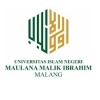Directive Speech Acts Represented as Teacher Feedback at Indonesian Higher Education Level
Abstract
Full Text:
PDFReferences
Anagaw, M. & Mossu, Y. (2019). Teacher Power in EFL Classroom: Associations with Classroom Interaction. Journal of Literature, Languages and Linguistics, 59, 6-17
Azhari, A. S., Priono. & Nuriadi. (2018). Speech Acts of Classroom Interaction. International Journal of Linguistics, Literature and Culture, 4(2), 24-45
Basra, S., & Thoyyibah, L. (2017). A speech act analysis of teacher talk in an EFL classroom. International Journal of Education, 10(1), 73-81.
Brown, H. D. (2001). Teaching by Principles: An Interactive Approach to Language Pedagogy. Second Edition. New York: Addison Wesley Longman
Braun, V., & Clarke, V. (2006). Using thematic analysis in psychology. Qualitative research in psychology, 3(2), 77-101.
Iswan, B. (2016). Students’ Perception toward Teacher’s Talk in English Teaching-Learning Process. Liguists: Journal of Linguistics and Language Teaching, 3(1)
Jodaie, M., & Farrokhi, F. (2012). An Exploration of Private Language Institute Teachers' Perceptions of Written Grammar Feedback in EFL Classes. English Language Teaching, 5(2), 58-67.
Khirahla, J. A. & Tyas, P. A. (2020). Tracing native teacher talk and classroom interaction in EFL context. Journal of English for Academic and Specific Purposes, 3(1)
Khusnaini, N. (2019). The Analysis of Teacher Talk and The Characteristic of Classroom Interaction in English for Young Learner. Journal of English Language Teaching, 8(2), 166-174
Kiger, M. E., & Varpio, L. (2020). Thematic analysis of qualitative data: AMEE Guide No. 131. Medical teacher, 42(8), 846-854.
Renkema, J., & Schubert, C. (2018). Introduction to Discourse Studies: New edition. John Benjamins Publishing Company.
Rustandi, A. & Mubarok, A. H. (2017). Analysis of IRF (Initial-Response-Feedback) on Classroom Interaction in EFL Speaking Class. EduLite: Journal of English Education, Literature and Culture, 2(1), 239-250
Saliu-Abdulahi, D., Hellekjær, G. O., & Hertzberg, F. (2017). Teachers’(formative) feedback practices in EFL writing classes in Norway. Journal of Response to Writing, 3(1), 3.
Searle, J. R. (1979). Expression and meaning: Studies in the theory of speech acts. Cambridge University Press.
Septianingsih, T., & Warsono, W. (2017). The types and power relation of directive speech acts in classroom interaction. English Education Journal, 7(1), 26-33.
Wirawan, S. & Sahiruddin. (2021). Teacher Talk in EFL Online Classes at Indonesian Tertiary Level. In Thirteenth Conference on Applied Linguistics (CONAPLIN 2020) (pp. 508-513). Atlantis Press.
Xiao-Yan, M. A. (2006). Teacher talk and EFL in university classrooms. Unpublished master’s thesis, Chongqing Normal University & Yangtze Normal University, China. Retrieved from www.asian-afl-journal.com
Yule, G. (1996). Pragmatics: Oxford Introduction to Language Study. Oxford University Press
Yule, G. (2010). The study of language (4th Ed). Cambridge University press.
DOI: https://doi.org/10.18860/jeasp.v5i2.18996
Refbacks
- There are currently no refbacks.

This work is licensed under a Creative Commons Attribution-ShareAlike 4.0 International License.







Editorial Office:
Pusat Pengembangan Bahasa
Program Khusus Pengembangan Bahasa Inggris (PKPBI)
Universitas Islam Negeri Maulana Malik Ibrahim Malang
Gedung C lantai 1
Jl. Gajayana No 50 Kota Malang, Jawa Timur, Indonesia
Kode Pos 65144, Telp/Fax : (0341) 570872
Email: jeasp@uin-malang.ac.id
JEASP : Journal of English for Academic and Specific Purposes is licensed under a Creative Commons Attribution-ShareAlike 4.0 International











